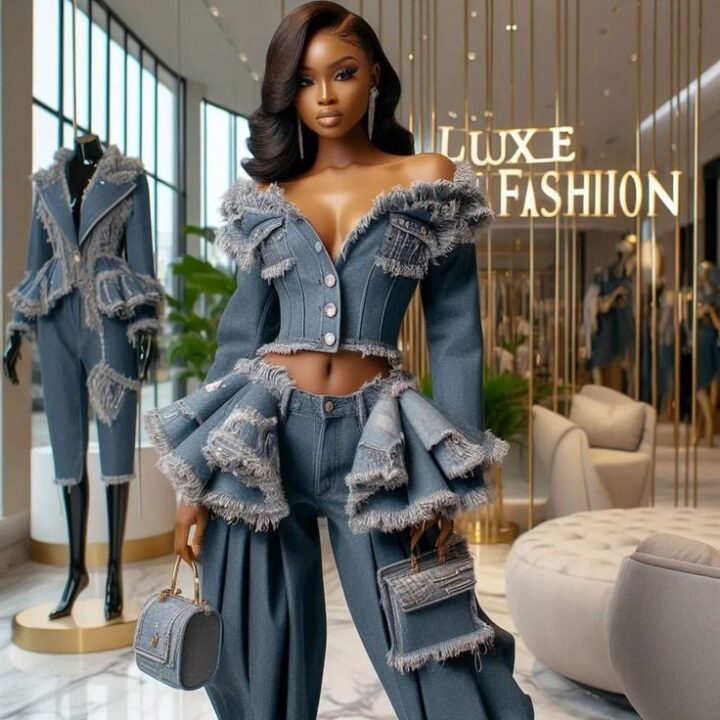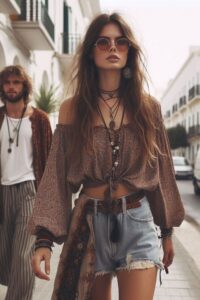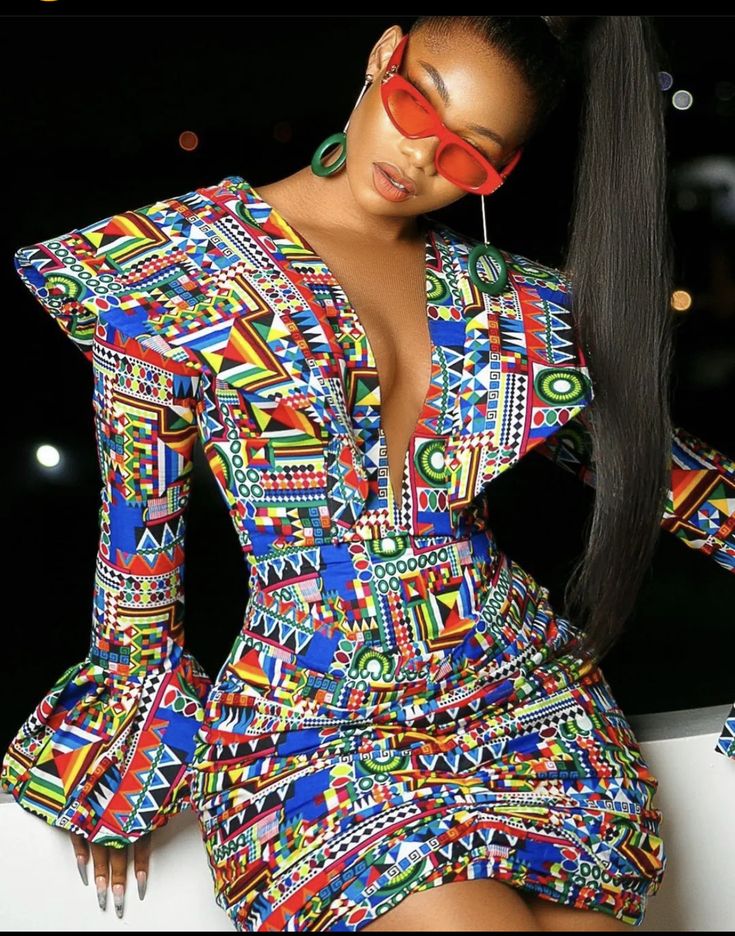
Hey there! Let’s talk about African fashion dresses. They are all about vibrant colors and unique patterns. And, of course, they carry a lot of cultural heritage with them. These dresses mix traditional and modern styles in a way that’s just beautiful.
African fashion dresses are a celebration of rich cultural diversity and creativity. They come with intricate designs and bright colors. Many of these designs are inspired by different African tribes and traditions. Here are some popular styles: Ankara, Kente, Dashiki and Kaftans. Each of these has its own unique flair. Pretty cool, right?
Designers use top-quality fabrics like cotton, silk, and lace to make these stunning dresses. They are super versatile too. You can wear them for casual outings or formal events. What’s great is that these dresses help people connect with their roots. At the same time, they embrace modern fashion trends. This mix of old and new makes African fashion dresses timeless and trendy.
So, if you’re a fashion enthusiast, these dresses are definitely worth checking out. They offer a unique blend of tradition and modernity that appeals to people all around the world. Let’s dive in to get more idea about Stunning African Fashion Dresses Collections.
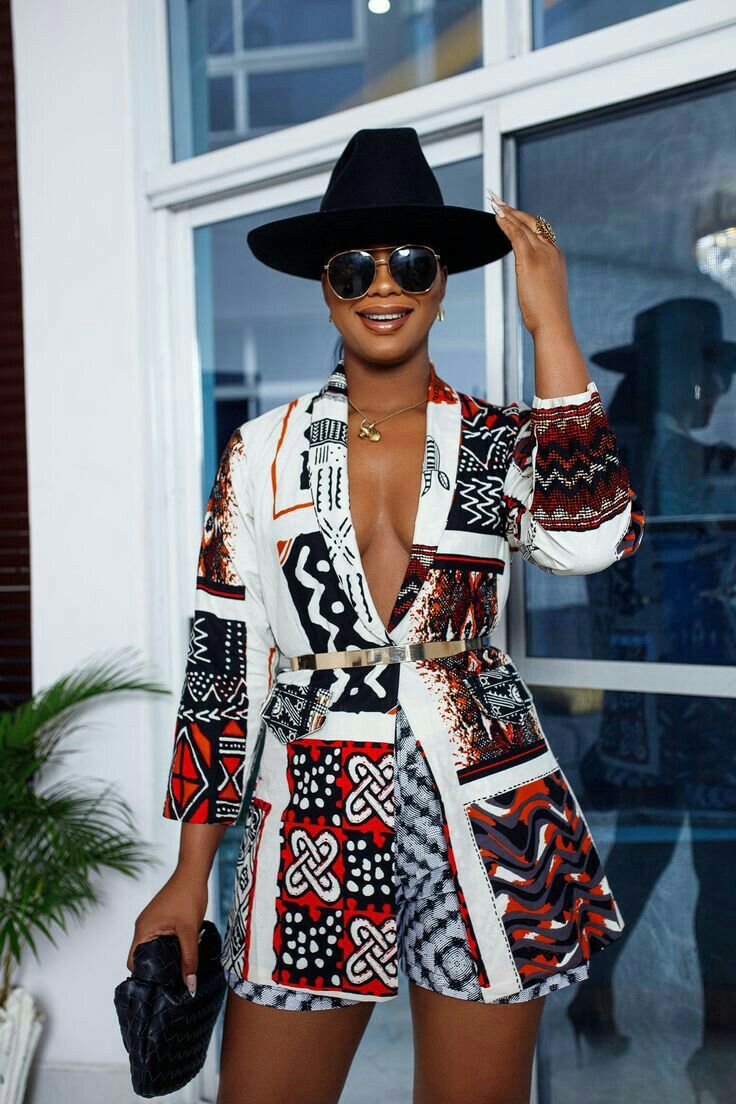
Cultural Significance
African fashion dresses are more than just beautiful garments. They carry a deep cultural significance that reflects the rich heritage and traditions of the continent. These dresses tell stories, honor ancestors, and celebrate identities. Understanding the cultural significance of African fashion dresses helps appreciate their beauty and the history they embody.
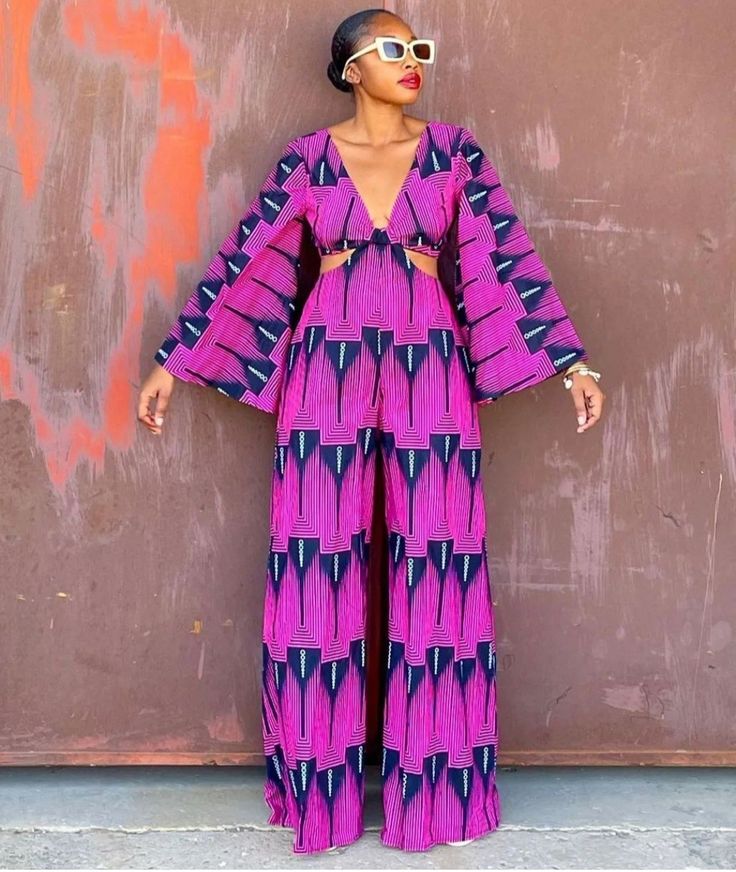
Historical Roots Of African Clothing
African fashion dresses have deep historical roots that span centuries. They are not just recent trends but have evolved through different eras, influenced by various cultures and traditions across the continent.
Historically, African clothing was made from natural materials like animal hides, fur, and later, woven fabrics. These garments were often handmade and dyed using natural dyes extracted from plants and minerals. Key historical influences on African fashion include:
- Ancient Egypt: Known for its intricate beadwork and linen garments.
- West African Kingdoms: Such as Mali and Ghana, famous for their woven kente cloth and mud cloth.
- Eastern Africa: Influences from Swahili culture, known for their vibrant kangas and kikoy fabrics.
Traditional African dresses were also used to signify social status, age, and marital status within communities. The colors, patterns, and materials used in these dresses often indicated the wearer’s position in society. 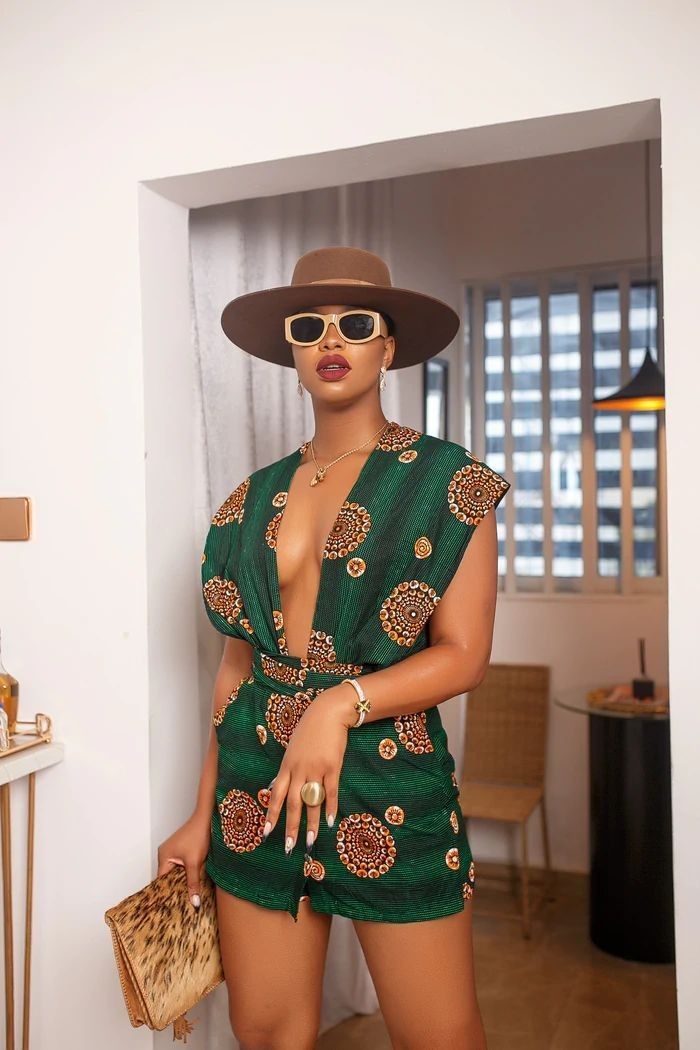
Symbolism In Patterns
The patterns on African fashion dresses are rich with symbolism and meaning. Each pattern tells a story and conveys messages that are understood within the cultural context.
Common symbols found in African patterns include:
- Geometric Shapes: Often represent unity, harmony, and order.
- Animal Motifs: Symbolize various attributes like strength, wisdom, and protection.
- Nature-inspired Designs: Such as flowers and trees, signify growth, life, and fertility.
Colors also play a significant role in African fashion. Each color holds a specific meaning and is chosen intentionally:
| Color | Meaning |
|---|---|
| Red | Symbolizes strength, power, and spirituality. |
| Blue | Represents peace, love, and harmony. |
| Green | Denotes fertility, prosperity, and life. |
| Gold | Signifies wealth, royalty, and high status. |
These patterns and colors are not just decorative but serve as a language through which African people express their identity, beliefs, and values.
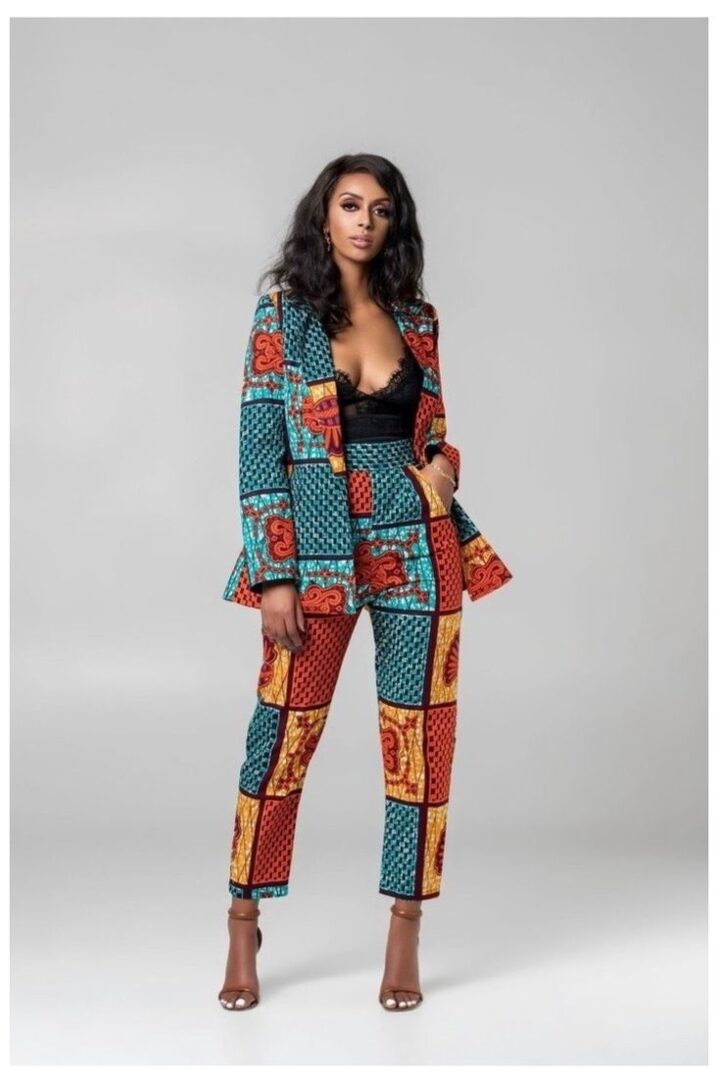
Popular Fabrics for African Fashion Dresses
African fashion dresses are famous for their vibrant colors and intricate designs. The fabrics used in these dresses play a crucial role in their beauty and cultural significance. Different regions have their own unique materials that tell stories of heritage and identity. Let’s explore some of the most popular fabrics in African fashion dresses.
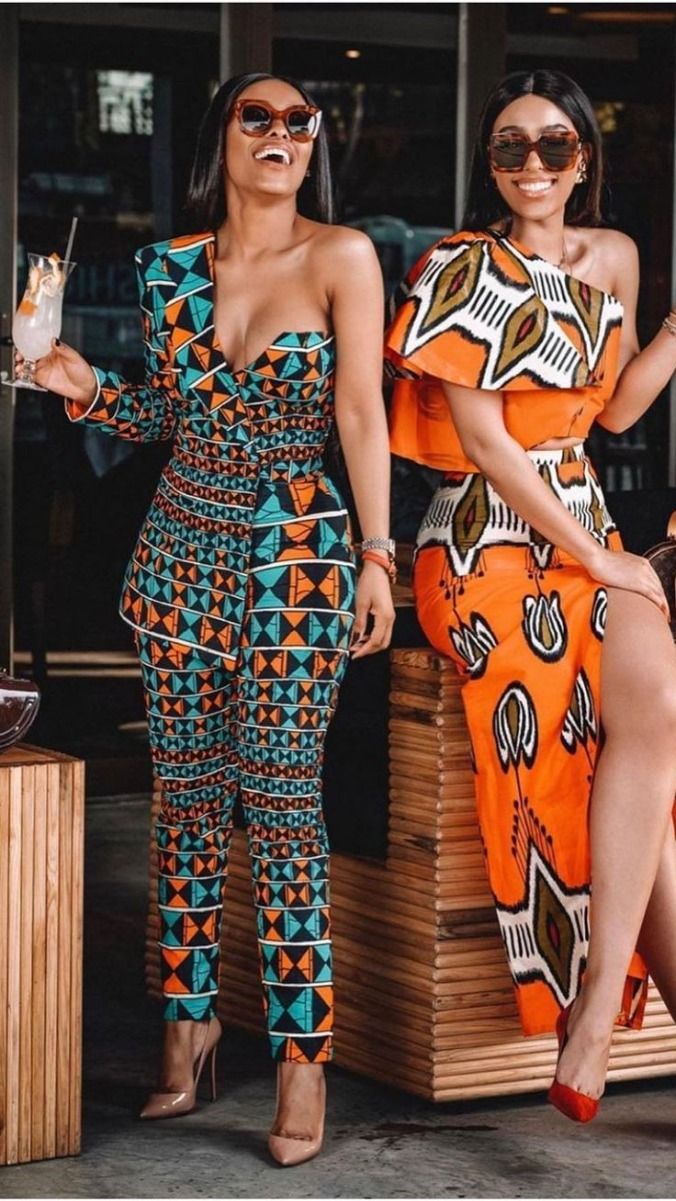
Ankara
Ankara is one of the most popular fabrics in African fashion. It is also known as African wax print. This fabric is loved for its bright colors and bold patterns. It is versatile and used in many types of clothing.
Ankara is made from 100% cotton. The fabric is printed using a wax-resist dyeing technique. This method ensures that the colors remain vibrant and do not fade easily. Here are some features of Ankara fabric:
- Durable: It lasts long and withstands wear and tear.
- Breathable: Perfect for hot climates.
- Colorful: Comes in a wide range of colors and patterns.
Many designers use Ankara to create stunning dresses, skirts, and tops. It is also used in accessories like bags and headwraps. The fabric is not just fashionable but also a symbol of African pride and culture.
Here is a table showing common uses of Ankara fabric:
| Type of Clothing | Common Uses |
|---|---|
| Dresses | Casual wear, formal occasions |
| Skirts | Everyday wear, office attire |
| Tops | Casual outings, parties |
| Accessories | Bags, headwraps, shoes |
Kente Cloth
Kente Cloth is another iconic fabric in African fashion. It originates from Ghana and is often associated with royalty. The fabric is known for its bright, multicolored patterns and geometric designs.
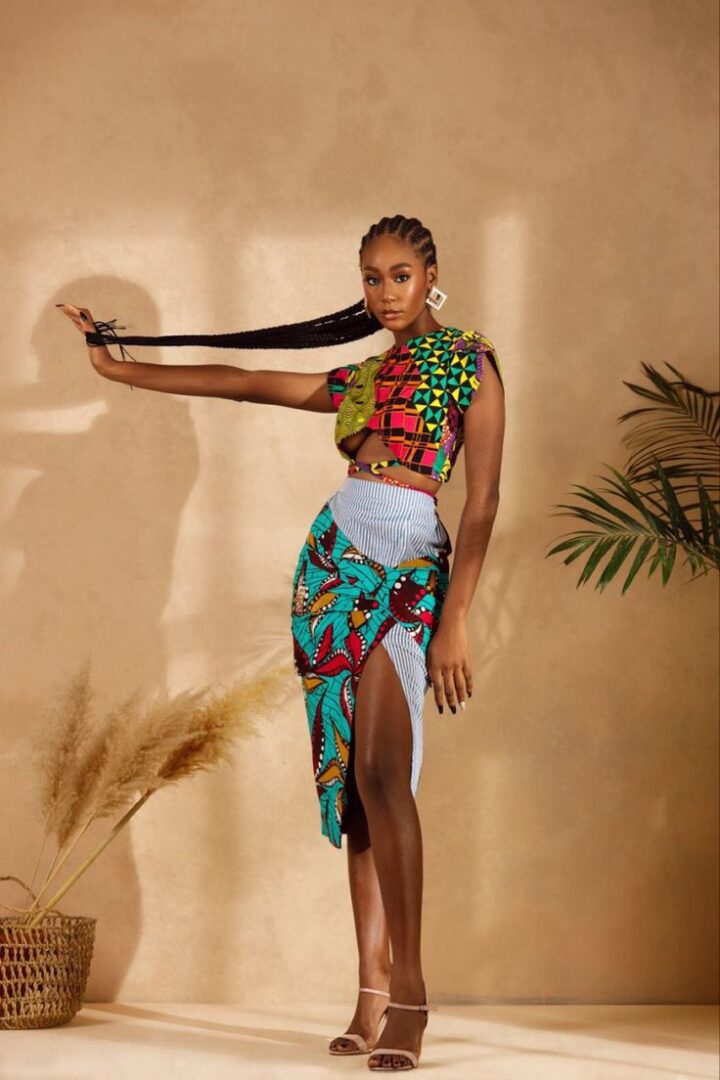
Kente Cloth is made from silk and cotton. It is handwoven on a loom, which makes each piece unique. The patterns and colors in Kente have specific meanings, often representing values like unity, peace, and love. Key features of Kente Cloth include:
- Handcrafted: Each piece is made with care and precision.
- Symbolic: Patterns and colors have cultural meanings.
- Luxurious: Often worn during special ceremonies and celebrations.
Kente Cloth is used to make traditional garments like robes and stoles. It is also incorporated into modern fashion, adding a touch of heritage to contemporary designs. People wear Kente to honor their roots and celebrate African culture.
Here’s a table highlighting the symbolic meanings of Kente Cloth colors:
| Color | Symbolic Meaning |
|---|---|
| Red | Passion, strength |
| Blue | Peace, harmony |
| Gold | Royalty, wealth |
| Green | Growth, renewal |
Modern Trends of African Fashion Dresses
African fashion dresses are captivating the world with their vibrant colors and unique patterns. These dresses are not just clothes; they are a celebration of culture and heritage. Modern trends in African fashion are blending traditional elements with contemporary styles. This blend makes African fashion dresses more appealing and accessible to everyone. Let’s dive into some exciting modern trends in African fashion dresses.
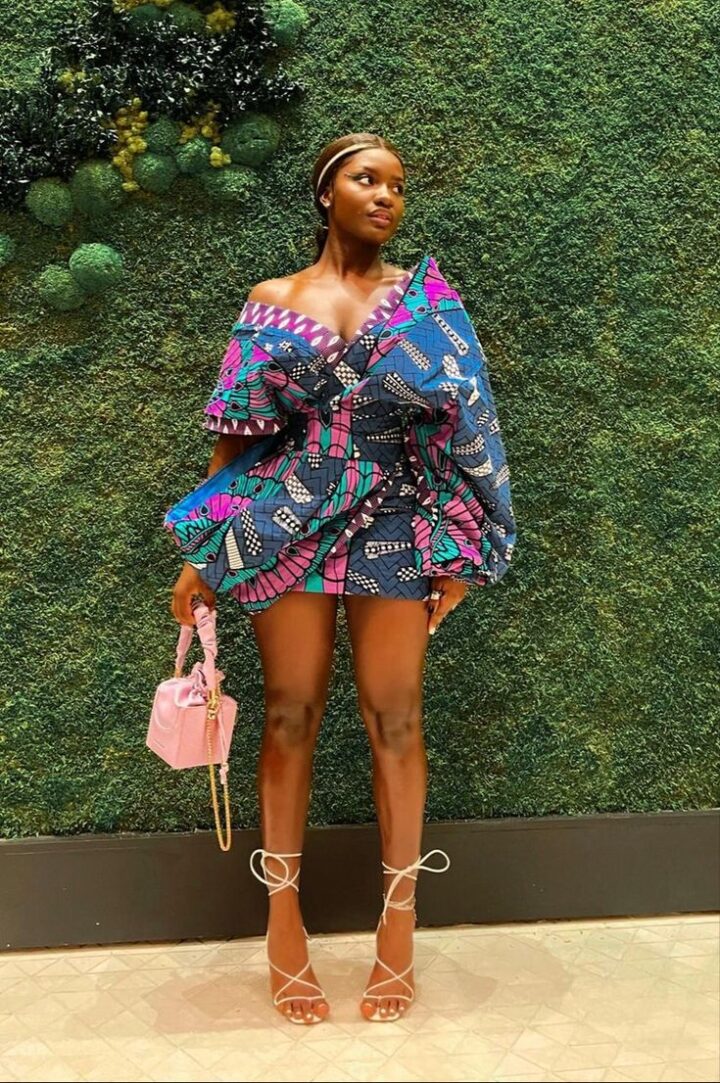
Fusion Styles In African Fashion Clothing
Fusion styles are a big hit in African fashion. Designers mix traditional African prints with modern cuts and fabrics. This creates a unique and stylish look. Here are some popular fusion styles:
- Afro-Western Mix: Combining African prints with Western-style dresses, such as A-line or skater dresses.
- Ankara Jackets: Wearing Ankara fabric as jackets over simple outfits adds a pop of color and culture.
- Traditional Prints with Modern Silhouettes: Using Kente or Dashiki prints in modern dress styles like mermaid or bodycon dresses.
Fusion styles are about blending the best of both worlds. They allow people to celebrate African culture while staying trendy.
Sustainable Fashion
Sustainability is becoming a key trend in African fashion. Designers are focusing on eco-friendly materials and ethical practices. This trend is crucial for the environment and supports local communities. Here are some ways African fashion embraces sustainability:
- Eco-friendly Fabrics: Using natural fibers like cotton and linen.
- Recycling Materials: Creating new designs from leftover fabrics.
- Supporting Local Artisans: Promoting handmade garments and fair wages.
Sustainable fashion helps reduce waste and promotes ethical practices. It also creates job opportunities for local artisans. Embracing sustainable fashion is not just a trend but a necessity. It ensures that fashion is beautiful and kind to our planet.
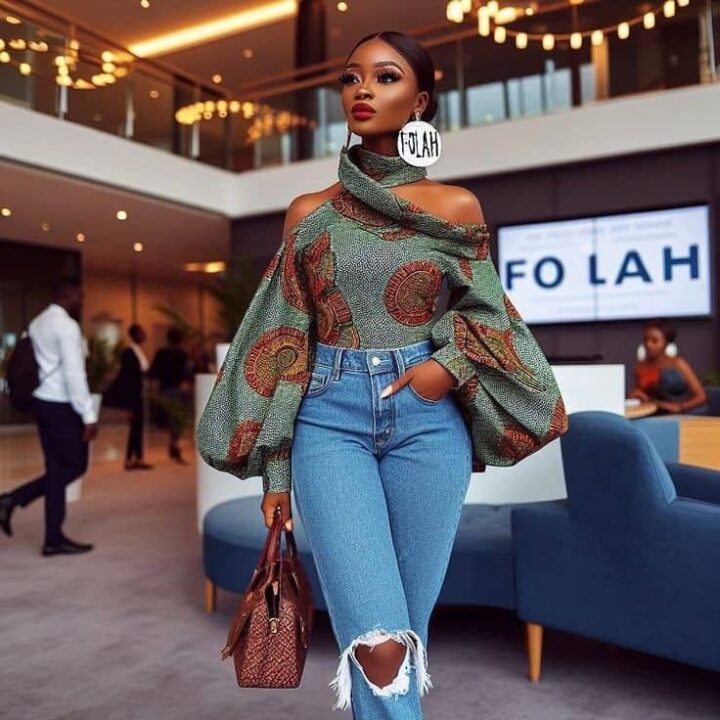
Influential Designers
African fashion dresses are making waves across the globe. The vibrant colors, unique patterns, and rich cultural heritage they embody are captivating fashion enthusiasts. Influential designers are at the heart of this movement. These designers are transforming African fashion into a global phenomenon.
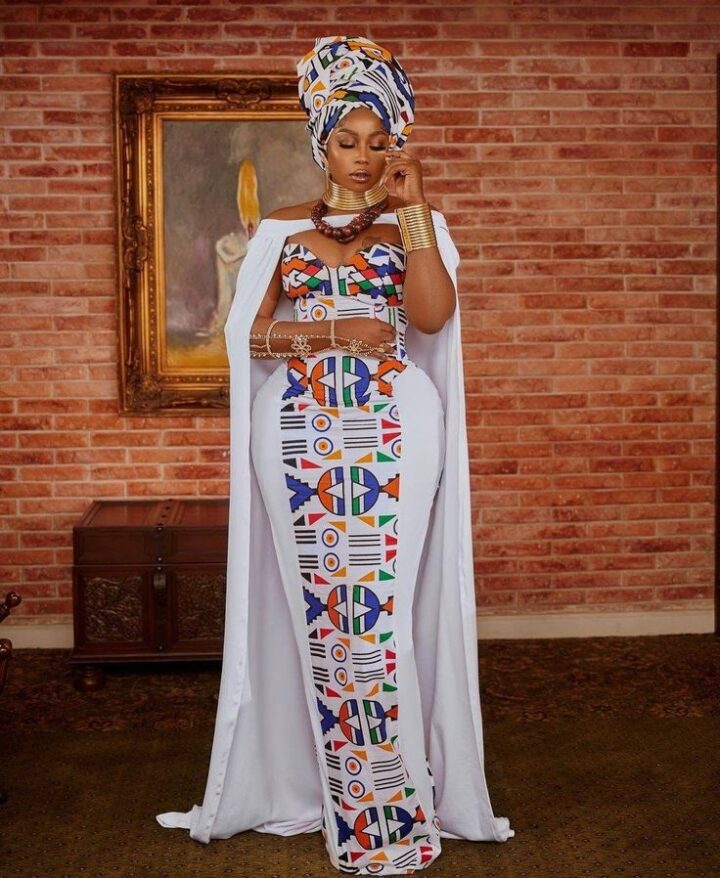
Emerging Talents
Africa is home to many emerging fashion designers who are making a mark. These young talents are bringing fresh perspectives and innovative designs. They are redefining African fashion with their creativity and passion.
Some of the notable emerging talents include:
- Lisa Folawiyo: Known for her intricate beadwork and vibrant prints, Lisa has gained international recognition.
- Loza Maléombho: Loza’s designs blend traditional African aesthetics with contemporary styles.
- Thebe Magugu: Thebe’s work celebrates African heritage with modern twists.
These designers are not only making beautiful dresses but also promoting sustainability. They often use locally sourced materials and support local artisans. This approach helps preserve traditional crafts and promotes ethical fashion.
Established Icons Of African Fashion
African fashion has also been shaped by several established icons. These designers have paved the way for the new generation. Their work has been celebrated on global platforms. Some of these icons include:
- Ozwald Boateng: Known for his sharp suits, Ozwald has dressed many celebrities.
- Deola Sagoe: Deola’s luxurious designs have made her a household name in African fashion.
- Imane Ayissi: Imane blends African and European influences in his haute couture designs.
These icons have contributed significantly to the global recognition of African fashion. They have been featured in international fashion weeks and have won numerous awards. Their influence continues to inspire and shape the industry.
Read More: Inner Dark Aesthetic Emo fashion ideas For Your Closet
Event-specific Styles for African Fashion Dresses
African fashion dresses are more than just garments; they are vibrant representations of culture and tradition. Each piece tells a unique story, often tailored for specific events. Event-specific styles in African fashion ensure that every occasion is celebrated with the right attire. From weddings to festivals, these dresses bring out the beauty and essence of African heritage.
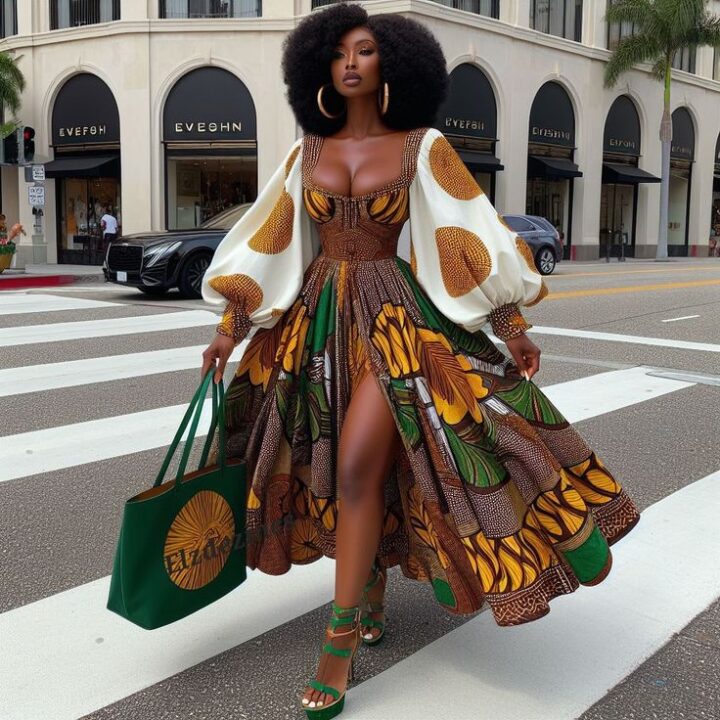
Weddings Clothing In African Fashion
Weddings in Africa are grand celebrations filled with color and joy. African wedding dresses are often elaborately designed to reflect this joyous occasion. Brides typically wear gowns made from luxurious fabrics like silk, satin, or lace, often adorned with intricate beadwork and embroidery.
These dresses come in various styles, including:
- Traditional Gowns: Long, flowing gowns with bold prints and vibrant colors.
- Modern Designs: Contemporary cuts with a touch of traditional patterns.
- Mixed Fabrics: Combining different fabrics to create a unique look.
Bridesmaids and guests also dress up elegantly. Men wear traditional agbadas or modern suits with African prints. The table below highlights some key elements of African wedding attire:
| Attire | Description |
|---|---|
| Bridal Gown | Long, luxurious, often white or gold, with intricate designs. |
| Bridesmaid Dresses | Coordinated with the bride’s gown, often in similar colors. |
| Groom’s Attire | Traditional agbada or modern suit with African prints. |
Festivals
Festivals are a significant part of African culture. They are times for communities to come together, celebrate, and showcase their traditions. Festival dresses are designed to reflect the vibrancy and energy of these events. Women often wear brightly colored dresses with bold patterns and intricate designs.
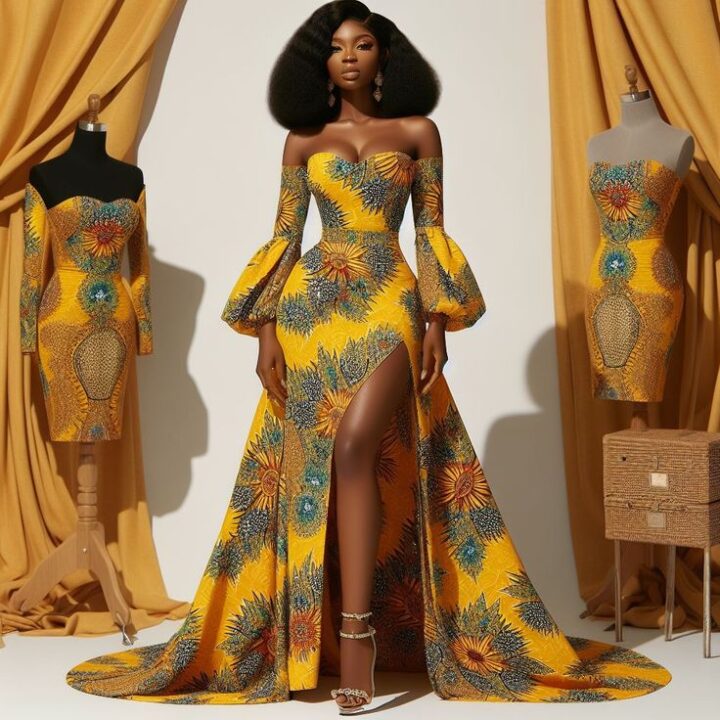
Popular styles include:
- Dashikis: Colorful garments that are loose-fitting and comfortable.
- Kaftans: Long, flowing robes with detailed embroidery.
- Maxi Dresses: Long dresses with traditional African prints.
Men’s festival attire is equally vibrant. They wear dashikis, agbadas, or traditional robes. The table below outlines some common elements of festival attire:
| Attire | Description |
|---|---|
| Dashiki | Colorful, loose-fitting garment, often with embroidery. |
| Kaftan | Long robe with detailed designs, worn by both men and women. |
| Maxi Dress | Long dress with traditional prints, often worn by women. |
Festival dresses not only celebrate the occasion but also honor the rich cultural heritage of Africa. Each piece of clothing is a testament to the artistry and creativity of African fashion designers.
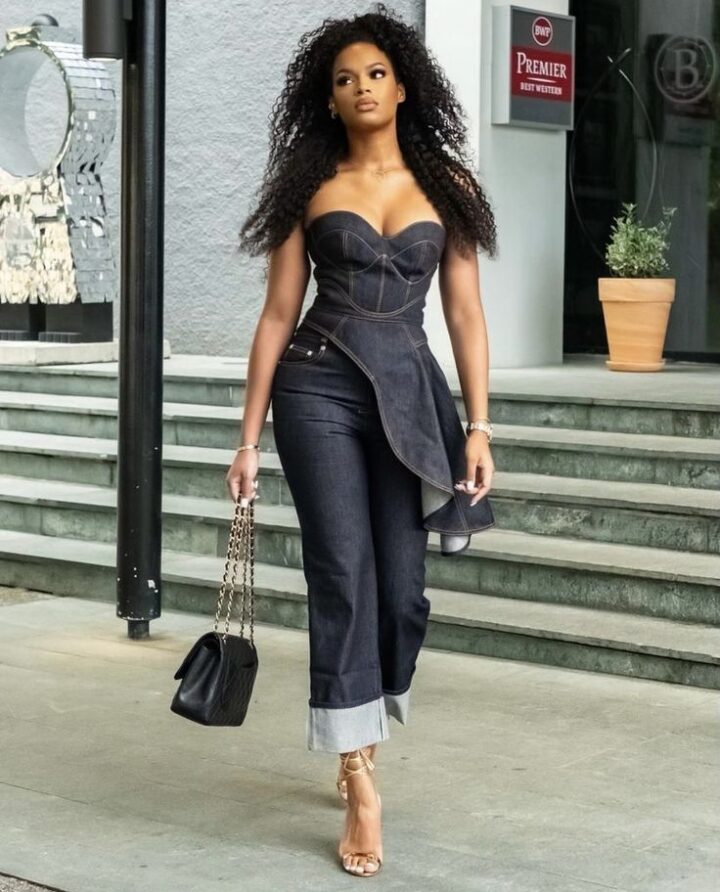
Accessories And Pairings
African fashion dresses are vibrant, colorful, and full of life. To truly stand out, pairing these stunning dresses with the right accessories is key. Accessories can transform a simple dress into a dazzling ensemble. From bold jewelry to stylish footwear, the right pairings make all the difference. Let’s dive into how to accessorize African fashion dresses for a complete and fashionable look.
Jewelry
Jewelry is the crown jewel of any outfit. African fashion dresses thrive on bold and unique pieces. Chunky necklaces and large earrings can add a dramatic flair. Opt for beaded jewelry or pieces made from natural materials like wood and shells. These not only complement the vibrant patterns but also celebrate the rich African heritage.
- Beaded Necklaces: These come in various colors and patterns. They add a pop of color and are perfect for any occasion.
- Wooden Bracelets: Simple yet elegant, they add an earthy touch to your outfit.
- Shell Earrings: Unique and eye-catching, they bring a touch of the ocean to your ensemble.
Mixing and matching different pieces can create a unique look. For example, pairing a bold necklace with simple earrings balances the outfit. Here’s a quick guide to help you:
| Dress Type | Jewelry Recommendation |
|---|---|
| Ankara Dress | Beaded Necklace, Shell Earrings |
| Kente Dress | Wooden Bracelet, Beaded Earrings |
| Dashiki Dress | Chunky Necklace, Simple Earrings |
Footwear
Footwear completes the look of African fashion dresses. The right shoes can elevate your outfit. Sandals and heels are popular choices. Beaded sandals look great with casual dresses. For a more formal look, opt for high heels or wedge sandals.
- Beaded Sandals: Perfect for a day out, they add a touch of elegance to casual dresses.
- High Heels: Great for formal events, they elongate your legs and add sophistication.
- Wedge Sandals: Comfortable and stylish, they are perfect for both casual and semi-formal events.
Choosing the right footwear depends on the occasion and the type of dress. Here’s a simple guide:
| Dress Type | Footwear Recommendation |
|---|---|
| Ankara Dress | Beaded Sandals, Wedge Sandals |
| Kente Dress | High Heels, Beaded Sandals |
| Dashiki Dress | Wedge Sandals, High Heels |
Comfort and style should be your guiding principles. Whether it’s a casual day out or a formal event, the right footwear will ensure you look and feel your best.
Also Read: Boots Fashion for Women That You Will Love
Global Influence
African fashion dresses have taken the world by storm. The vibrant colors, unique patterns, and cultural significance of these garments have made them a global phenomenon. Designers and fashion enthusiasts worldwide are embracing African fashion. This blog post explores how African fashion dresses are influencing global trends.
International Runways
African fashion dresses have become a staple on international runways. Top fashion shows in New York, Paris, and Milan now feature African-inspired designs. These dresses showcase the rich heritage and craftsmanship of African culture.
Here are some key highlights:
- New York Fashion Week: Designers like Stella Jean and Ozwald Boateng showcase African prints and fabrics.
- Paris Fashion Week: African designers such as Imane Ayissi bring elegance and tradition to the forefront.
- Milan Fashion Week: African patterns and textiles are celebrated for their boldness and beauty.
Fashion houses are also collaborating with African designers. This fusion of styles creates unique collections that captivate audiences. The international runways serve as a platform for African fashion to shine.
Celebrity Endorsements
Many celebrities embrace African fashion dresses. Their endorsements boost the popularity of these unique garments. Celebrities like Beyoncé, Rihanna, and Lupita Nyong’o often wear African-inspired outfits.
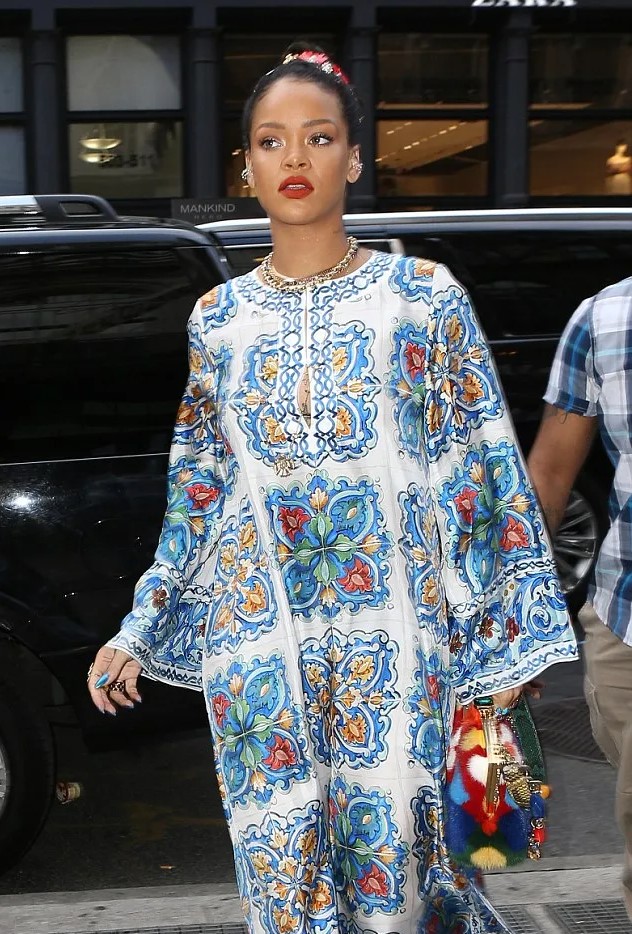
Here are some notable instances:
| Celebrity | Event | Designer |
|---|---|---|
| Beyoncé | Global Citizen Festival | Zuhair Murad |
| Rihanna | Met Gala | Guo Pei |
| Lupita Nyong’o | Academy Awards | Calvin Klein |
Celebrity endorsements help bring African fashion to the masses. Fans admire their favorite stars and imitate their style. This trend continues to grow, making African fashion a global sensation.
DIY African Fashion Dresses
African fashion dresses are vibrant and full of life. DIY fashion allows anyone to bring these beautiful designs to life at home. By making your own African fashion dresses, you can express your unique style and creativity. It’s also a fun and rewarding way to wear something truly special.
Sewing Techniques
Learning the right sewing techniques is key to creating stunning African fashion dresses. Here are some essential techniques to get you started:
- Basic Stitches: Master the straight stitch and zigzag stitch for sturdy seams.
- French Seams: This technique hides raw edges, giving your dress a clean finish.
- Hemming: Learn different hemming techniques like the blind hem for a polished look.
Using the right tools can make your sewing projects easier:
| Tool | Purpose |
|---|---|
| Sewing Machine | For faster and more precise stitching. |
| Seam Ripper | To fix mistakes without damaging the fabric. |
| Measuring Tape | Ensure accurate measurements for a perfect fit. |
Choosing the right fabric is crucial. African fabrics like Ankara, Kente, and Dashiki are popular choices. They come in bright colors and bold patterns, perfect for making a statement.
Custom Designs
Creating custom designs allows you to add your personal touch to African fashion dresses. Here are a few ideas to inspire you:
- Mix and Match: Combine different fabrics and patterns for a unique look.
- Embroidery: Add intricate designs with colorful thread to enhance your dress.
- Beading: Use beads to create beautiful accents and details.
Sketching your design first can help visualize the final product. Consider the following tips:
- Proportions: Ensure your design is balanced and flattering.
- Color Palette: Choose colors that complement each other and suit your style.
- Details: Think about the little details that will make your dress stand out.
Using a dress form can help you see how your design will look on a body. It also makes adjustments easier. Don’t be afraid to experiment with different elements until you find what you love.
Frequently Asked Questions
What Are African Fashion Dresses?
African fashion dresses are vibrant, colorful, and feature unique patterns and designs. They often incorporate traditional fabrics like Ankara and Kente. These dresses are popular for their cultural significance and stylish appeal.
Where To Buy African Fashion Dresses?
You can buy African fashion dresses from online retailers, local boutiques, and specialized African fashion stores. Websites like Etsy and Afrikrea offer a wide variety of options.
How To Style African Fashion Dresses?
Style African fashion dresses with statement accessories and bold jewelry. Pair with neutral shoes to let the dress stand out. Add a matching headwrap for a complete look.
What Fabrics Are Used In African Dresses?
Common fabrics used in African dresses include Ankara, Kente, Dashiki, and Kitenge. These fabrics are known for their vibrant colors and intricate patterns.
Conclusion
African fashion dresses celebrate rich heritage and vibrant culture. They offer unique styles for every occasion. Embrace these stunning designs to stand out and express individuality. Explore African fashion to add color and tradition to your wardrobe. Celebrate diversity and make a bold fashion statement with African dresses today.

